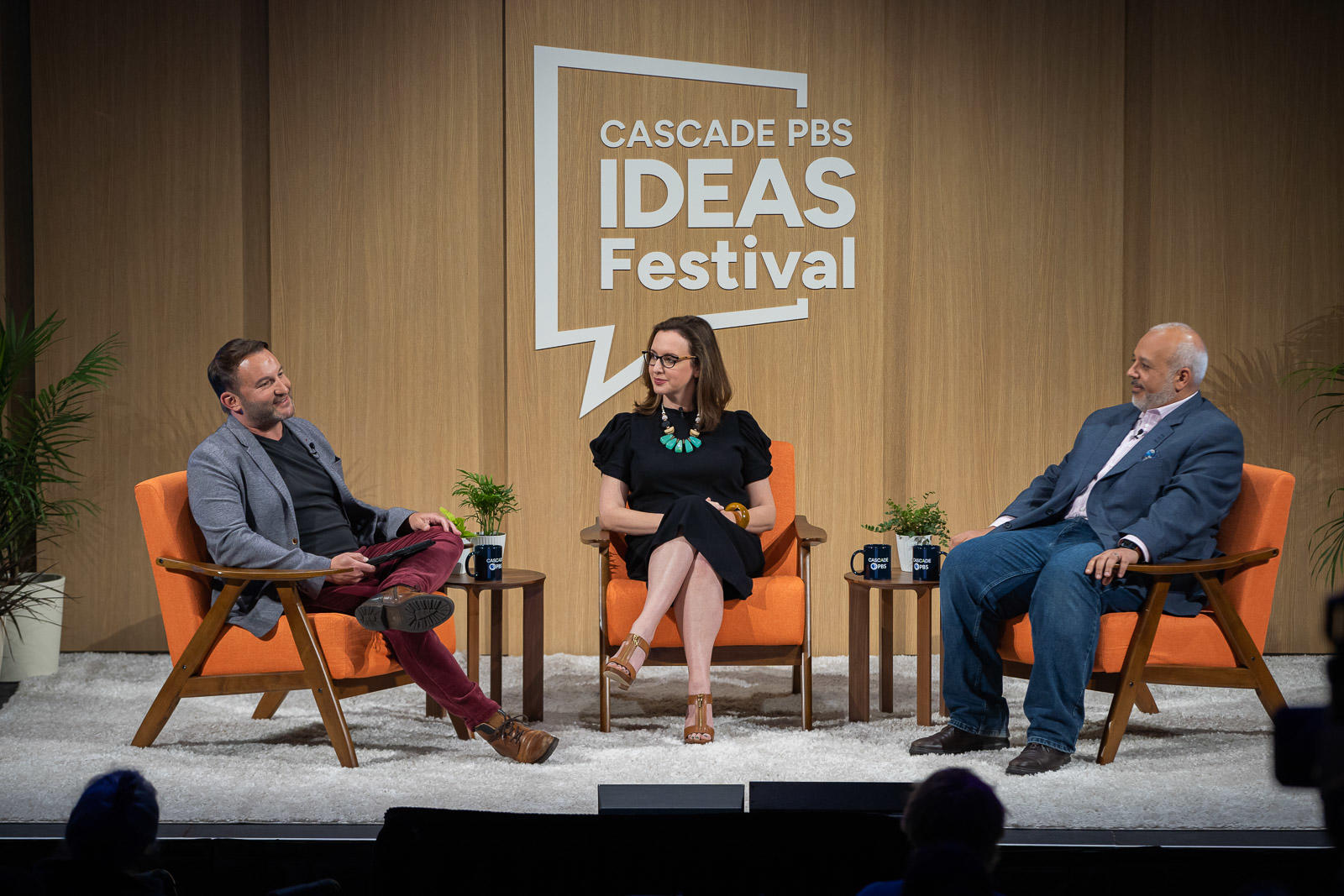The topic filling newscasts and newspapers right now came up during conversations ranging from the 2024 election to racism in America today. And not surprisingly it was a focus of the live recording of the podcast Left, Right & Center, KCRW’s weekly politics show hosted by David Greene.
The show looks to bring together people with different political perspectives to show it is possible to have a productive and peaceful conversation, without changing the topic to what they had for breakfast or what the weather is.
Greene was joined on Saturday by Sarah Isgur, senior editor at The Dispatch and spokesman for the Department of Justice during the Trump administration, and Mo Elleithee, spokesman for the Democratic National Committee during the Obama administration.
The conversation started by addressing the first elephant in the room: the nationwide university student protests calling for a ceasefire in the Israel-Hamas war.
Despite some disagreements regarding their stances on the conflict, Elleithee and Isgur agreed that the conflict in Gaza relates to a larger topic in the U.S. about freedom of speech and hate speech.
They came to the consensus that the campus protests are pushing public sentiment away from the plight of the Palestinian people by dramatic actions like shutting down the Golden Gate Bridge.
“I think we’re in agreement on the fundamental point that this is about much bigger stuff, it is about a culture of mistrust and distrust in our institutions and the political incentive is to fuel that fire,” Elleithee said.
Isgur said students were limiting freedom of speech on campuses, allowing only those to express their freedom of speech if it aligned with their beliefs, and choosing to steer away from speaking to the media.
The conversation shifted to a larger topic on public distrust of media, especially around coverage of the 2024 Presidential election. Isgur said the media wasn’t curious enough to uncover topics surrounding either candidate, and that their conversations within the newsroom were completely different from the content they produced.
She shared an example, after she left her job at the Justice Department, in which a reporter asked for information about an extramarital affair of two department employees.
“The reporter who had the story called me to confirm certain details that I didn’t have,” Isgur said. “He was trying to coax me, he’s like, well if you have anything, it’s really important. This story will help Donald Trump so we need to be careful with it.”
Elleithee said one way to regain public trust is to diversify newsrooms with journalists with different life experiences, including hiring more people of color and those from rural America to “pop the bubble.” He also advised the media to stop blurring the line between analysis and editorial.
“I don’t need you as a reporter to tell me what isn’t a threat to democracy. What I need you to do is tell me what is happening, what they said, what they did and what that would result in, and let me decide,” Elleithee said.
To hear more of the conversation, watch the broadcast on Cascade PBS at 7 p.m. on May 15, or streaming the next day on cascadepbs.org and crosscut.com. Listen to all sessions on the Cascade PBS Ideas Festival podcast.
CORRECTION: A previous version of this story included incorrect titles for some of the speakers. This version has been updated with correct titles.



